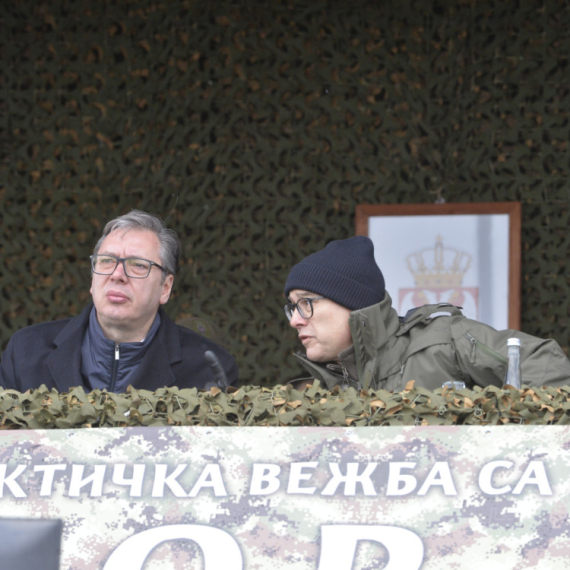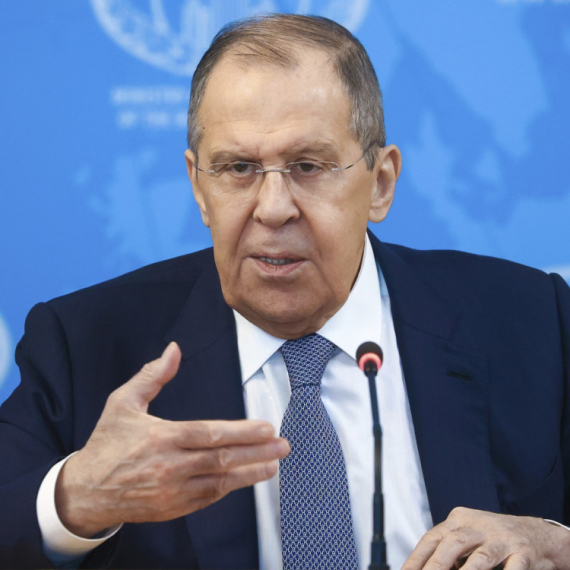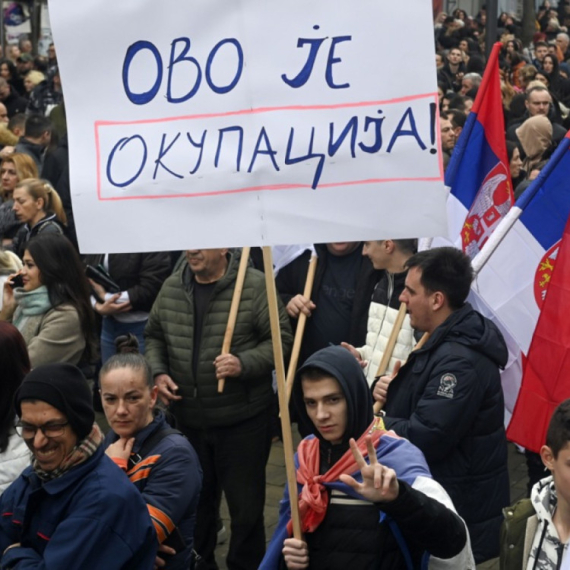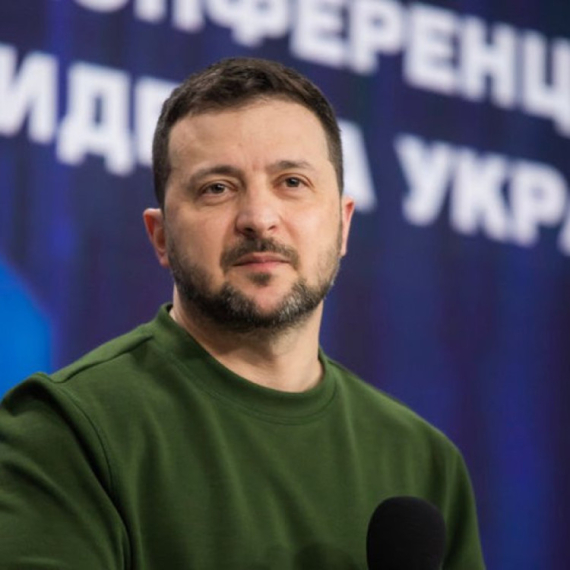Serbian measures "find support with IMF and WB"
The measures that the Serbian government plans to implement "have found support with the World Bank (WB) and the International Monetary Fund (IMF)."
Monday, 14.10.2013.
15:34

WASHINGTON The measures that the Serbian government plans to implement "have found support with the World Bank (WB) and the International Monetary Fund (IMF)." This happened at their 2013 Annual Meetings event in Washington, National Bank of Serbia (NBS) Governor Jorgovanka Tabakovic said, and explained that the measures are meant "to bring the country closer to global economic trends - by spending no more than is earned." Serbian measures "find support with IMF and WB" Tabakovic said that "everyone is aware that these are grave and unpopular measures, but are there for the future of the country and its people." Tabakovic told Tanjug in Washington that Serbia was in a difficult economic situation "because frivolous politicians have failed to undertake the necessary measures in time.” She reminded everybody that funds received from privatizations have almost literally vanished into thin air. The NBS governor said that that Serbia’s currency is stable and that in September, monthly inflation rate was zero percent, and stood at 4.9 percent against September 2012. “Only a low and stable inflation rate can make possible the implementation of plans by both the economy and citizens,” Tabakovic said. The current low inflation was brought about by successful monetary policy measures, agricultural season and exports of Fiat’s products, she added. Commenting on the government's new measures, the NBS governor pointed out that the IMF is not pushing Serbia to achieve results too quickly as the measures concern the people of the country, and every country has to be aware that such measures need to be implemented in a socially sustainable environment. Jorgovanka Tabakovic (Beta, file) WB "encouraged by government's commitment" World Bank (WB) Country Director for the Western Balkans Ellen Goldstein has said that she was "very encouraged by the commitment that the Serbian government has demonstrated over the previous month to embark on the public sector reform." When asked about the situation in Serbia at a news conference in Washington on Friday, she commended the Serbian government, underscoring that measures related to the public sector reform should have been taken long time ago. "We see that the government is strongly committed to that, primarily reforms related to the restructuring of public enterprises. We hope that, although these are very tough years, they will be carried out, as Serbia has to introduce them in order to ensure a recovery and growth," said the senior World Bank official. The forecasts for the Western Balkans are similar to those for Europe, suggesting a moderate recovery next year, which should then continue in the next three years, she noted. How the situation will develop will depend on the choices that would be made in relation to structural reforms and reforms on the side of spending, Goldstein concluded. Governor of the National Bank of Serbia Jorgovanka Tabakovic and Finance Minister Lazar Krstic are on a visit to Washington, where they are attending a regular annual meeting of the International Monetary Fund (IMF) and World Bank. Talks with the IMF and WB will mostly address a possible new arrangement with Serbia and the WB's USD 400 million program. The finance minister has recently said that Serbia will consider the possibility of negotiations on a new arrangement with the IMF, and latest meetings with representatives of that international organization in Belgrade are part of preparations for the drafting of a budget for 2014, and a long-term fiscal strategy by 2016. Tanjug
Serbian measures "find support with IMF and WB"
Tabaković said that "everyone is aware that these are grave and unpopular measures, but are there for the future of the country and its people."Tabaković told Tanjug in Washington that Serbia was in a difficult economic situation "because frivolous politicians have failed to undertake the necessary measures in time.”
She reminded everybody that funds received from privatizations have almost literally vanished into thin air.
The NBS governor said that that Serbia’s currency is stable and that in September, monthly inflation rate was zero percent, and stood at 4.9 percent against September 2012.
“Only a low and stable inflation rate can make possible the implementation of plans by both the economy and citizens,” Tabaković said. The current low inflation was brought about by successful monetary policy measures, agricultural season and exports of Fiat’s products, she added.
Commenting on the government's new measures, the NBS governor pointed out that the IMF is not pushing Serbia to achieve results too quickly as the measures concern the people of the country, and every country has to be aware that such measures need to be implemented in a socially sustainable environment.
WB "encouraged by government's commitment"
World Bank (WB) Country Director for the Western Balkans Ellen Goldstein has said that she was "very encouraged by the commitment that the Serbian government has demonstrated over the previous month to embark on the public sector reform."When asked about the situation in Serbia at a news conference in Washington on Friday, she commended the Serbian government, underscoring that measures related to the public sector reform should have been taken long time ago.
"We see that the government is strongly committed to that, primarily reforms related to the restructuring of public enterprises. We hope that, although these are very tough years, they will be carried out, as Serbia has to introduce them in order to ensure a recovery and growth," said the senior World Bank official.
The forecasts for the Western Balkans are similar to those for Europe, suggesting a moderate recovery next year, which should then continue in the next three years, she noted.
How the situation will develop will depend on the choices that would be made in relation to structural reforms and reforms on the side of spending, Goldstein concluded.
Governor of the National Bank of Serbia Jorgovanka Tabaković and Finance Minister Lazar Krstić are on a visit to Washington, where they are attending a regular annual meeting of the International Monetary Fund (IMF) and World Bank.
Talks with the IMF and WB will mostly address a possible new arrangement with Serbia and the WB's USD 400 million program.
The finance minister has recently said that Serbia will consider the possibility of negotiations on a new arrangement with the IMF, and latest meetings with representatives of that international organization in Belgrade are part of preparations for the drafting of a budget for 2014, and a long-term fiscal strategy by 2016.


























































Komentari 2
Pogledaj komentare